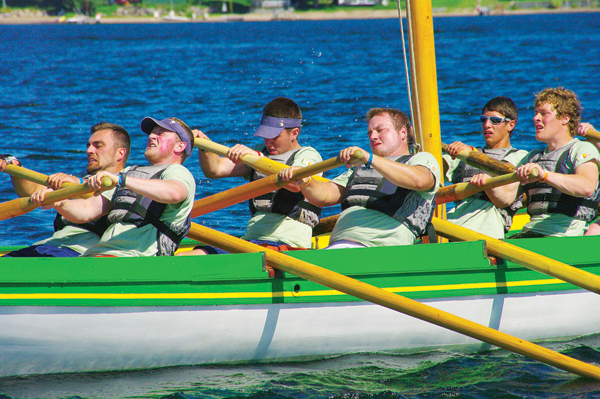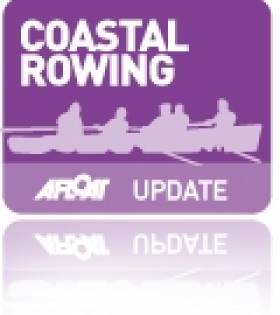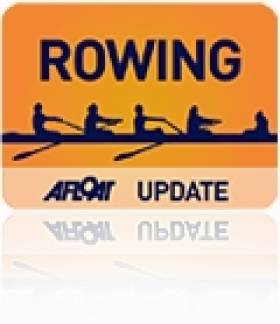Displaying items by tag: Atlantic Challenge
#Rowing - Galway man Gavan Hennigan aims to join an elite group of rowers who've crossed the Atlantic solo when he takes part in the gruelling Tallisker Whisky Atlantic Challenge later this year.
Not to be confused with the Atlantic Challenge for longboats, the Tallisker Whisky Atlantic Challenge is a 3,000-nautical-mile rowing route across the world's second-largest expanse of ocean from the Canary Islands to Antigua in the West Indies.
Described as "horrific" by Seán McGowan, the first Irish person to complete the route six years ago, it's a challenge that's not for the faint of heart.
And 'extreme environment athlete' Hennigan is making it even tougher for himself by heading out solo among a field that usually features teams of up to four.
But the experienced adventurer – who hopes to raise €20,000 over the coming months for charities including Cancer Care West, Jigsaw, Sanctuary and the RNLI – is taking it all in his stride.
"I suppose I like the idea of the challenge," he told the Galway Independent. "I’ve spent a lot of my time in extreme places doing mountaineering in the Himalayas, I’ve been to Antarctica, I’ve done some of the world’s longest and toughest ultra-marathons.
"I’ve also had one of the most dangerous jobs in the world as a commercial diver so I’ve lived this life of extreme adventure and this just looked like the next big challenge for me."
The Galway Independent has more on the story HERE.
Bantry Crew in Second in 'Atlantic Challenge'
The Bantry Bay crew, soared in second place, while representing Ireland in the Atlantic Rowing Challenge; International Contest of Seamanship in early August this year in Midland Canada.
Competing on Lake Huron, one of the five Great Lakes the Bantry Bay Crew displayed huge amounts of physical and mental strength as they accomplished first place in their first three races.
The Atlantic Challenge is held every other year and sponsors a friendly contest of seamanship in Bantry Bay gigs. Founded by an American native Lance Lee, the Atlantic Challenge aims to build trust among nations and form a community of youth and adults from many countries, while also encouraging the practice of traditional maritime skills.
Over the duration of the competition, the crew all from Bantry in West Cork placed well in all events but disaster struck when a mast step shattered just before the start of the Oars and Sails race, one of the team's better disciplines. The crew using their initiative and experience managed to fix the mast and crossed the start line under sail, ten minutes after the other crews had started. In 13th (and last) position, a huge performance was needed to regain the lost ground and, again, the Bantry crew pulled out all the stops and produced an inspiring display of courage and stamina picking off each of the other competitors one by one. The ten minute delay at the start fuelled this determination and they managed a very respectable fifth position, just eight minutes behind the winners. They raced the course two minutes faster than anyone else.

The International Contest of Seamanship has travelled from France (2000), Maine U.S.A (2002), Wales (2004), Italy (2006), Finland (2008), to Midland (2010) and Bantry is set to host the Atlantic Challenge International Contest of Seamanship in 2012. For more information, log onto www.bantry2012.ie or www.atlanticchallenge.org Click this link for Irish Rowing details
Click this link for the Latest Rowing News
Solo Rower says Atlantic Crossing was 'horrific'
The first Irish man to row solo across the Atlantic Ocean has spoken of his fears that some one will be killed on the challenge which he says was "horrific". After spending 118 days at sea Limerick man Seán McGowan was honoured with a mayoral reception in his native city last night Kathryn Hayes has the full story on the Woodvale Ocean Rowing Race in the Irish Times. Click read more for the story link.
Sean McGowan reached land in Antigua May 1 to become the first Irish-based oarsman to row across an ocean. The 42-year-old from Shannon Rowing Club crossed the Atlantic in 118 days one hour and 14 minutes. He had rowed out of La Gomera in the Canary Islands on January 4th.
Solo rower warns against 'horrific' Atlantic challenge
Click this link for Irish Rowing detailsClick this link for the Latest Rowing News


























































